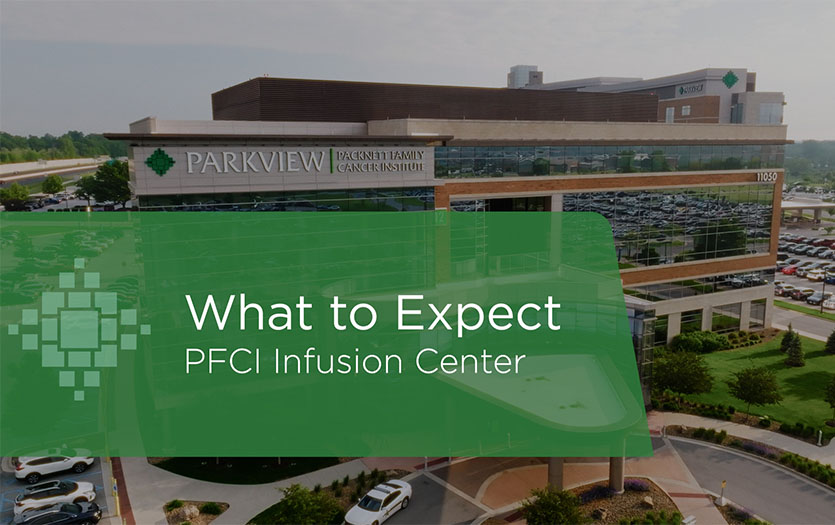
Heart disease continues to be a leading cause of death in the United States. At Parkview Heart Institute, we know that living with heart disease can be stressful and making the right lifestyle changes can require guidance and support. For this reason, several years ago, we introduced the Her Heart Support Network, regular meetings for women who have survived a heart-related event or diagnosis. Now, we are thrilled to announce that we have a similar option for our male patients!
Join us for Brave Hearts: A focus group for men with heart disease. Here, men will gather in an open forum to ask questions and share experiences and ideas on adjusting to life after being diagnosed with heart disease. Each month, we will cover a new topic or event focusing on healthy living, exercise, nutrition, stress reduction, smoking cessation and more.
For more on the offering, we asked Cale Tabler, certified exercise physiologist, supervisor, Cardiac Rehab, Parkview Heart Institute, to discuss the biggest benefits men can gain from utilizing these resources for their heart health journey.
From a Parkview Heart Institute perspective, why is a men’s support group so important?
Heart disease continues to be one of the leading causes of mortality in our country. Many studies have revealed that these patients are at greater risk for psychosocial vulnerabilities. Depression, anxiety and post-traumatic stress disorder are prevalent in patients who have cardiovascular disease. The incidence of depression in patients with heart disease is believed to be as high as 31%, which is significantly greater than the general population.
A 2019 study reported that men are at high risk for physical and emotional challenges following a cardiac event. Unfortunately, these struggles often go unrecognized.
Common themes expressed by men who face a cardiac diagnosis are:
- “Not me, not now!”
- “What am I doing here? What will my life be like once I’m back home?”
- “I’m not the man I used to be!”
Creating a patient-centered forum with the support of a collaborative interprofessional team focused on men-sensitive topics may help with the social adjustments and physical challenges following a cardiac event. The forum will allow men to share experiences and ideas and participate in health-promoting lifestyle activities such as exercise, nutrition education, stress reduction strategies and tools to impact other modifiable risk factors.
Dave, a Parkview Heart Institute patient who reached out to initiate the men’s support group, shared the following …
The heart event takes your purpose away. You might feel like you can't provide for or protect your family. You can’t make love or are scared to. Depression sets in and you feel alone. This can lead to destructive behavior.
When the heart event happens, you go through so many changes–physically and mentally. You feel frightened. If you tell your story, someone can relate. They can hear what worked for you and what didn't. You may be in a place where they want to be. They won't feel so afraid. Talking about it takes the power away from the fear.
What are the main messages you hope to convey through Brave Hearts?
We will emphasize the importance of completing cardiac rehabilitation and establishing habits and a routine that prepares them for a healthier lifestyle.
Cardiac rehab plays a crucial role in the recovery and ongoing management of individuals with heart-related conditions. Specifically, it improves their health and physical abilities, reduces their risk of complications, promotes healthy lifestyle shifts, enhances psychological well-being, including confidence and independence, and improves the patient’s quality of life overall.
In the long-term, addressing underlying risk factors and adopting healthy practices to prevent recurrence is essential. This includes managing blood pressure, cholesterol levels, weight and stress, all of which contribute to heart health.
For a patient to reach their goals, recommendations entail:
- Routine wellness exams
- Attending scheduled follow-ups with physicians
- Maintaining a regular exercise routine
- Establishing a heart-healthy diet
- Connecting with a support group
Health is interconnected, so improvements in one area often positively affect others. For example, exercise strengthens the heart, improves mood, reduces stress and enhances sleep quality. While addressing heart health after a cardiac event is important, taking a holistic approach to health and wellness is equally vital to promoting longevity and overall well-being.
By exploring these topics more deeply and creating a space for participants to share the habits that are helping them, we can influence lasting change.
Be a Brave Heart
Any man who has a cardiac diagnosis, experienced open-heart surgery or another heart procedure, or who had a cardiac arrest or heart attack is invited to participate in the support group.
Brave Hearts: A focus group for men with heart disease
Meets monthly on the second Thursday (Next meeting will be May 9, 2024), 6 p.m.-7 p.m. Parkview Heart Institute - 5th Floor, Conference Room 2
RSVP by emailing [email protected] or get details through our calendar of Classes & Events.
Sources
Doyle, F., Mcgee, H., Conroy, R., & Delaney, M. (2011). What predicts depression in cardiac patients: Sociodemographic factors, disease severity or theoretical vulnerabilities? Psychology & Health, 26(5), 619-634.
Jbilou, J., Grenier, J., Chomienne, M. H., Talbot, F., Tulloch, H., D'Antono, B., & Greenman, P. (2019). Understanding men’s psychological reactions and experience following a cardiac event: a qualitative study from the MindTheHeart project. BMJ open, 9(9), e029560.



